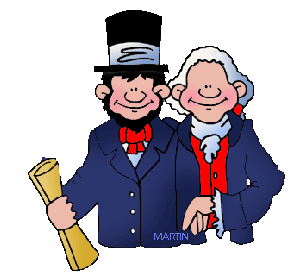French and Dutch Settlements
While Spain and Portugal were the initial leaders of exploration of the new world in the 1500s, the intense rivalry of all other countries began to displace them.

The French, Dutch, and English began to make headway as they landed in the Americas and created settlements. Their goal, like many others, was to find gold, silver, and fur as well as create colonies of new lands that they claimed for their countries.
The French and Dutch explored and colonized much of the Northeast of what is today the United States, and the Spanish began to lose the strongholds they had previously created.
The French:
- The Spanish had great successes in the Caribbean and this attracted the attention of the French. Navigator Jacques Cartier made claim in 1534 to an area North America for France. He named the title of New France around the St. Lawrence River with a desire to establish a permanent colony.
- Another explorer, Samuel de Champlain explored the Caribbean, New England’s coast and then further north where he founded Quebec. He claimed all areas for France, and unlike other European countries that demeaned the local inhabitants, the French established good relationships with the natives.
- The goal of the French was to create colonial outposts that would be beneficial for trade.
- Champlain’s positive attitude with the indigenous people paid off as he established successful trade with them and brought back valuable wealth to France. The natives traded furs for valuable French items such as glass beads. He established an alliance with the Algonquin and Huron tribes and even stood with them to fight against their Iroquois enemies.
- Much of the areas of the Great Lakes and Hudson Bay were explored by Champlain and records show that he traveled all the way to the Mississippi River.
- By 1635, the French were looking at the West Indies islands and as the Spanish control was weakened, the colonized the islands of Martinique and Guadeloupe. They used these islands for the production of the sugar crop and as a base for the slave market.
The Dutch:
- Dutch exploration was focused more on creating colonies for religious freedom than the land grab and greed of other European countries.
- A majority of Europe was Roman Catholic and in the 1500s a major Protestant reform movement of Calvinism was taking hold in the Spanish Netherlands. Holland became the central hub for the religion and became a nation in 1588.
- Due to religious conflict, Spain wanted to destroy Protestantism and this led to the King of Spain launching the Spanish Armada against Holland and England.
- The huge navy of 130 ships was destroyed in a storm, but it led to the Dutch knowing that they had to create colonies for religious freedom.
- The Dutch quickly jumped into the exploration race, establishing themselves as savvy commercial trade experts.
- By the 1600s the Dutch established trade in Asia with the Dutch East India Company and the Dutch West India Company for trade in the Americas.
- English sea captain Henry Hudson, was employed by the Dutch East India Company and he explored the New York Harbor that was eventually named for him.
- The purpose of his voyage was to see if he could find a northwest passage to Asia. He claimed the area for the Netherlands when he found a rich wealth of beaver pelts.
- The Dutch colony of New Netherlands became the major fur-trading outpost and gave the Dutch West India Company profit and power to expand to other outposts.
- This power led them to become a major rival to Spain and led to the eventual condition of Amsterdam becoming the Atlantic World trade hub.
What did you learn?
What was the goal of the French for early exploration?
find gold, silver, and fur as well as create colonies of new lands that they claimed for their countries
Who was the French explorer that traveled in the Caribbean, parts of New England and founded Quebec in Canada?
Samuel de Champlain
How did the French explorers differ from the Spanish in their attitudes with native people?
the French respected the natives and created alliances with them
Why did the Dutch enter the exploration race?
religious freedom and to find trade routes
What is the name of the Dutch colony that became the major fur-trading outpost?
New Netherlands
The success of the Dutch in their exploration led to what profitable condition for Amsterdam?
they became the Atlantic World trade hub



